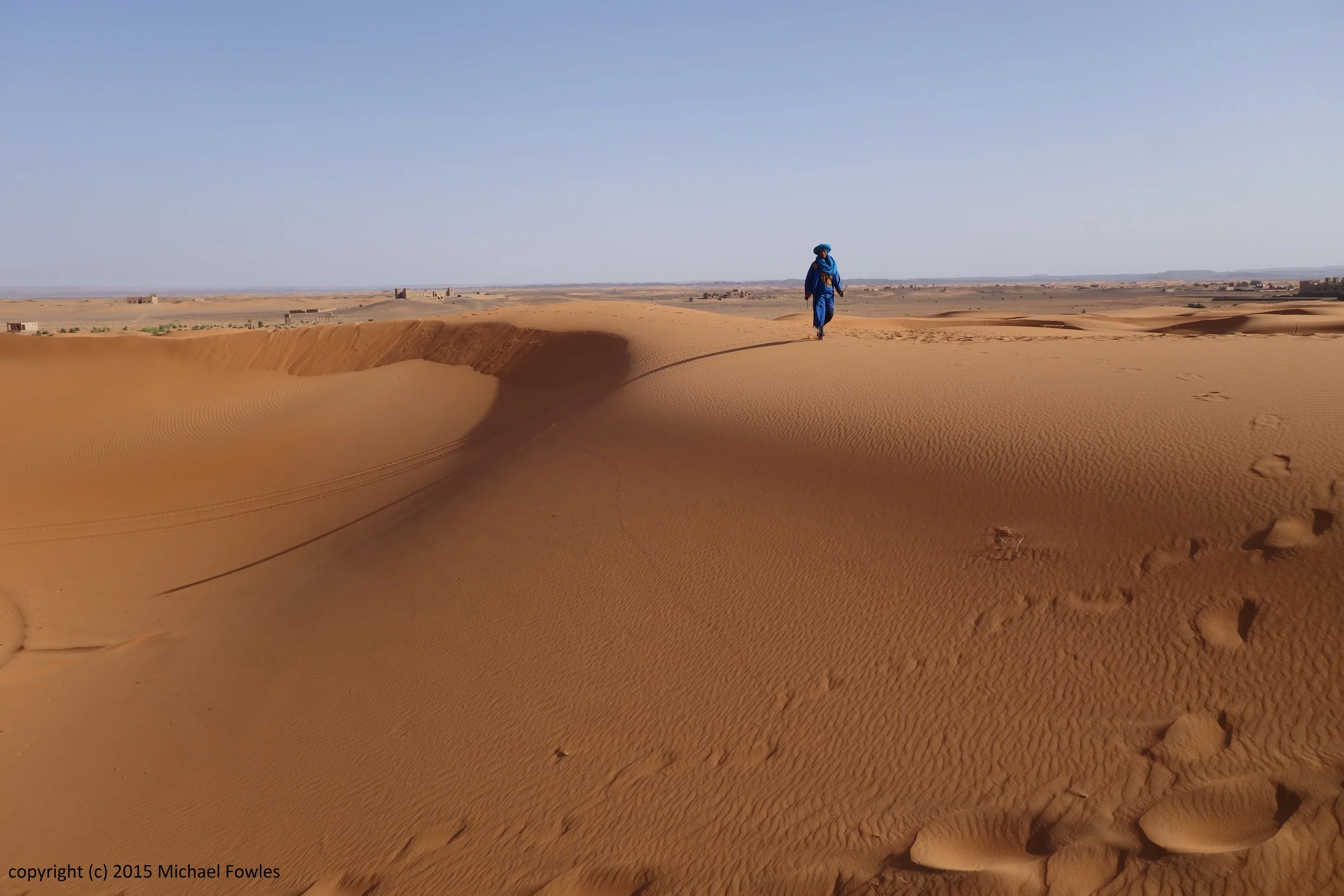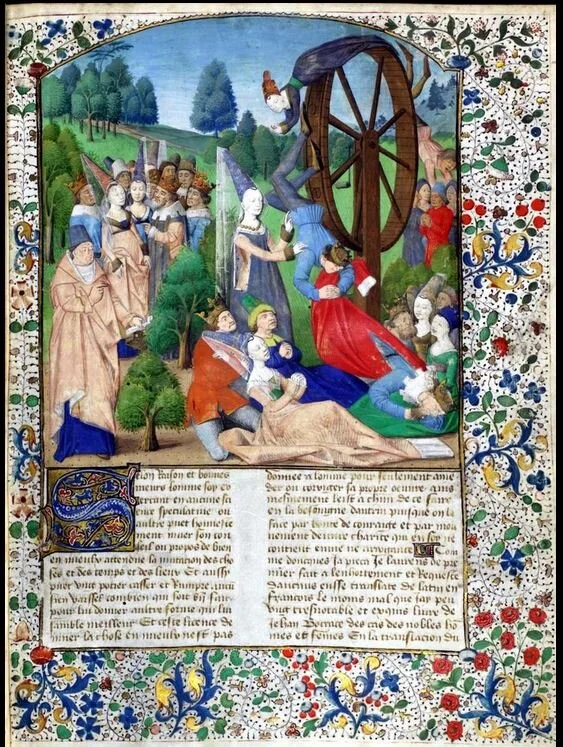From Rabat to Casablanca, via the Sahara
In October, we spent over two weeks in Morocco, traveling via foot, bus, 4x4, and--yes--even camel. I carried no real computer with me for composing blog posts (we had an iPad, but I do NOT consider that a productive device; it's designed for consumption of Product, not for work). Like Turkey, Morocco is a Muslim country; like Turkey, it's mostly safe to travel. That makes it quite different from, say, Syria or Iraq, or even Saudi Arabia. Women are likely to wear scarves and abayas; many wear face coverings as well. But in the cities you'll see some women in more Western dress, both on the streets and on TV. And since Arab Spring, you'll see more women members of Parliament. Make no mistake, though, it's a monarchy, not a democracy.
We spent two days on our own in Rabat and Sale, wandering through the medinas, the souks, and the mellah (the old Jewish quarter, hard 'h' like 'ach'). It is hard to describe how hard-scrabble so many people's lives are, much more so than Turkey. We were constantly warned to stick to bottled water for everything, to avoid fresh fruits and vegetables, and to carry our own toilet paper. I see lots of new condos going up, so obviously there is a growing middle class. But many people cling, by choice or necessity, to ways of work and behavior that have not changed for many hundreds of years. Shepherds, ironworkers, tanners, bakers.... Some efforts are being made to educate the rural and desert Berbers, and the Berber (Tamazight) language is officially recognized now by the government, alongside Arabic and French, but there is a gulf between the middle class and the poor... and the rich.
A hammam furnace worker's rest area
After our two days passed, we joined up with our planned tour group of fifteen other souls plus a local tour guide, Aziz. He did an astonishing job taking us from cities to hardscrabble towns to absolute desert, nursing us through the inevitable intestinal upsets, and giving a context for everything we saw. For foodies, the cuisine is best described as hearty, with satisfying but usually not overpowering spices (ras el hanout is the standout, a mix of 35 different spices). Carrots, potatoes, onions, eggplants, plus loads of meat--lamb, beef, even camel. Fish in the coastal towns. No pork products. Not a whole lot of cheeses. Vegetarians might have problems. Regarding spices--I found some eggplant dishes overpowering, others were just fine. The newly touted argan oil comes mostly from Morocco. The nuts are harvested by hand, and either roasted and pressed (for cooking oil) or cold-pressed (for cosmetics). A lot of the work is done by women's co-operatives, giving their members a small taste of economic freedom. Make no mistake, though, it's tough work.
Regarding the mellah: Morocco had a Jewish population a thousand years before the Sephardic diaspora of the 1490's. The key word here is 'had.' Starting in 1948, with the birth of Israel, almost the entire Jewish population migrated to Israel. There is a moving documentary called "Tenghir-Jerusalem: Les Echos du Mellah" available on YouTube; a Moroccan Muslim explores what happened (in French, with subtitled Hebrew and Arabic. I was able to catch the gist of it from the subtitles and help from French-fluent Irene). Everyone on both the Jewish and Muslim sides state that there was and is no enmity between the two cultures in Morocco. So why the move? Meh. Politics, not religion? The overall sentiment is of puzzlement and regret.
We left Casablanca for a breather in Paris before heading home. I gorged on fresh salads on Rue Passis. We toured some of the lesser-known museums and sights. I marveled at drivers stopping for pedestrians, even jaywalkers. We picked up a copy of Charlie Hebdo, and yes, it's still as unfettered as ever; free speech can be both inspiring and appalling, and nobody gets spared. Let it be noted that such publications would not see the light of day in Morocco. Let it also be noted that there does not appear to be a problem with militant Islamists, either. Of course, the mosques are under state control and their courses and content are state approved. There's a lesson here, somewhere.
Our interactions with Moroccans, both on our own and with the tour group, were extensive and cordial. We saw no signs of anger or ill will toward Americans. We walked city streets day and night, had impromptu conversations in a variety of contexts, shared meals in restaurants, people's homes, Berber tents, and were made to feel welcome. If you go, please treat people as you would in any American city--would you walk up to a stranger in Brooklyn or Chicago or L.A. and snap their photo and upload it to Facebook without first asking permission? No, you wouldn't. Expect that some people won't mind, and others, especially the more conservative residents, will. My recommendation, based on an experience in a long-ago trip to Tangier: Especially don't aim your camera at palace guards armed with automatic weapons unless you've gotten pre-approval.




